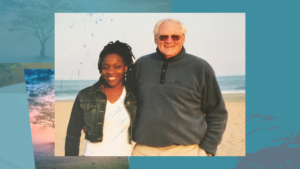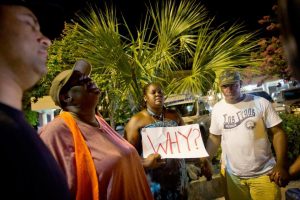Kara Tippetts and Jill Lynn Buteyn, Just Show Up: The Dance of Walking through Suffering Together, David Cook, 2015, 190 pages.
 “Love, work, prayer, and suffering will sustain us in the future as they have in the past. All who are here now, all who will come after us, will have no other tools than these with which to build” (Mollie Rogers, Founder of Maryknoll Sisters, 1882-1955).
“Love, work, prayer, and suffering will sustain us in the future as they have in the past. All who are here now, all who will come after us, will have no other tools than these with which to build” (Mollie Rogers, Founder of Maryknoll Sisters, 1882-1955).
Kara and Jason Tippetts moved to Colorado to plant a church. Within a few short months of being there, Kara found out she had breast cancer, which she battled for three years. Kara died March 22, 2015, but she left behind a community she had built out of love, work, prayer, and suffering. She also left Just Show Up: The Dance of Walking through Suffering Together, a tribute to the community-building power of suffering, which she co-wrote with Jill Buteyn, a friend she had met in Colorado.
In Just Show Up the words of Paul come alive: “If one member suffers, all suffer together; if one member is honored, all rejoice together.” The truth is suffering, unlike happiness, is an interruption to many of us; it is an inconvenience in our lives. But to this community in Colorado, it becomes an opportunity “to enter in” and find the true meaning of life that comes from God’s love. “Entering in” is not an easy decision, as Jill, says in one of her texts to Kara:
I’m writing about meeting you. About choosing to enter into a relationship, knowing it could be hard. About how I’ve never regretted that decision, though along the way bad news sent me sobbing to the floor of my house on more than one occasion. I would choose you all over again, Kara. You’ve changed my life, and the journey together has changed my life. And that’s what this book is about for me. Big love. People are missing out when they don’t enter the lives of those around them.
“Entering in” is not easy but it is rewarding, because through suffering we find the “true self”: suffering peels away the layer of the false self. Jill knew she was going to choose to know a friend in a way that would surpass the superficial layers that hide who we truly are to one another. “Walking through suffering with a loved one strips the pretense away” (19), she says. This position of humility would not be easy for Kara either. Ironically, Kara recognizes that her suffering is not about her; it’s about true friendship within the Body of Christ that forms a community:
Friends. Community. It is the only way to know and be known. It’s where we see our own humanity and frailty, our gifts and our weaknesses. When we show up for one another, we invade each other in love and become witnesses to the truth that trials and sickness and pain are not the whole story. There’s more, so much more. We can remind one another that our lives are not a mistake. And, most importantly, that we are loved with an everlasting love (11).
Just Show Up is not a book about dying. Yes, it is about suffering, but a suffering that comes with a gift to those who choose to walk it with grace, and, as such, it is a dance on paper. This book shows you how to walk alongside someone who is suffering. I think Jill and Kara write the book well, because they literally ‘show us’ more so than ‘tell us’ what we are to do and be.
Jill’s journal entries are raw, personal and emotional, filled with pain, doubt and love for a friend. They remind me of King David’s psalms about his suffering, when he is pleading to God to save him from his enemies, except that Jill is pleading for Kara’s relief.
Lord, I just keep saying His name. And it is a prayer. But I don’t even know what I am asking for. Peace? Wisdom? A different life for my friend? Yet it’s not a diagnosis I need. I don’t want to hear where the cancer has gone. Just typing that sentence brings a rush of moisture to my eyes. What I need to know is if she’s okay. Has she gone to the dark place to mourn and cry and rage that this shouldn’t be her life? That’s where I would be. But Kara almost always surprises me. Today there will probably be a blog post, and she might state things are not well, but she always comes back to Jesus. How can a person not be attracted to that kind of friendship? (36)
Kara’s chapters in the book are short and leave me wishing they were longer. Her tone is different here than in her earlier memoir The Hardest Peace. Here she has clearly transcended the self and has entered fully into love. This is what it looks like:
It should have not have taken cancer to cause me to abound in more and more love, but that is what Jesus chose to use to prompt my heart to extend the borders of me to love my people with more love than I could have otherwise known. I would have likely protected myself, lived safe, comfortable. But the long good-bye brings an amazing and seemingly senseless sharing of love (151).
What does it take for us “to extend the borders of ourselves” to love people unconditionally? Hopefully, we can learn from Kara to surrender and love “big” and from Jill to just show up for someone who is suffering and discover the life that comes from this kind of love. I encourage you to read this book, to look in and witness the type of Christian living that comes from a community who dares to enter in.







